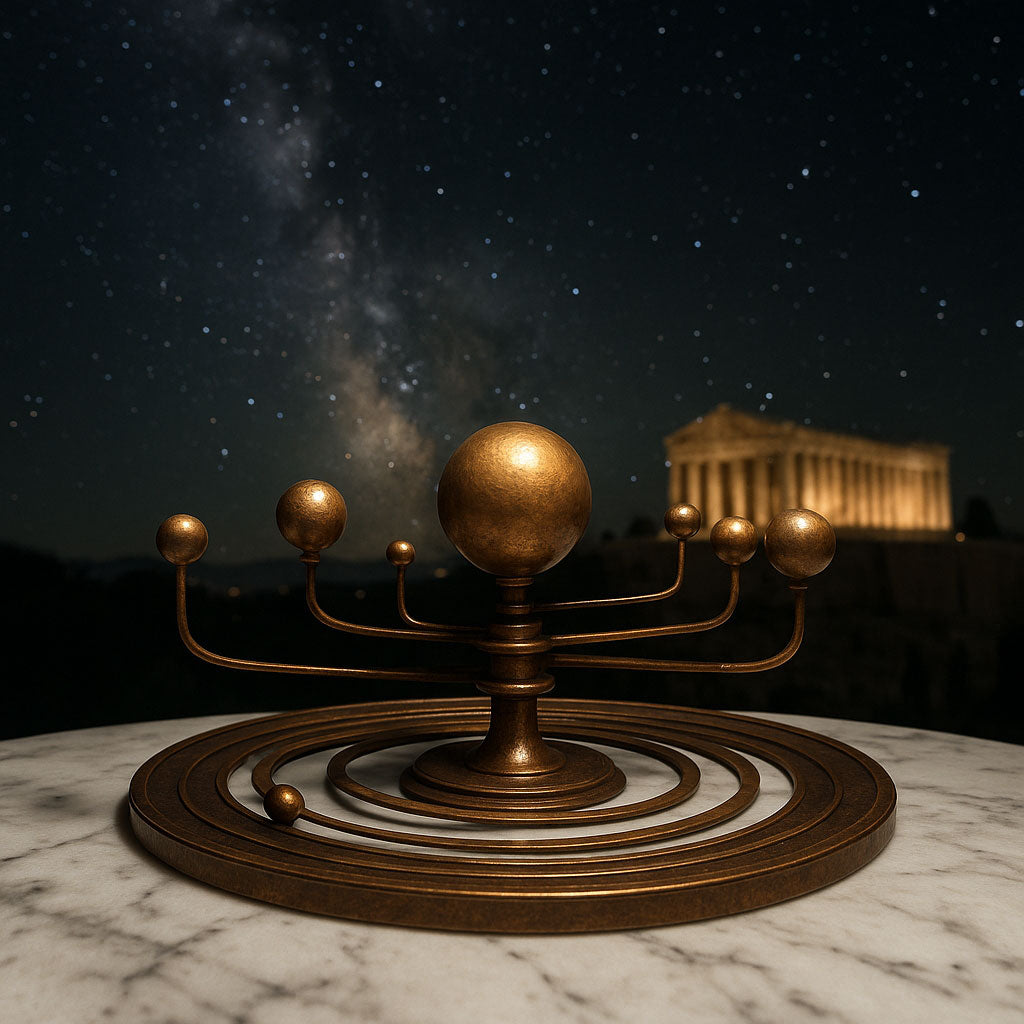🌌 Greek Gods and the Planets: How Ancient Greeks Named the Heavens
Did you know that most of our planet names come from ancient mythology? While we often think of Roman gods, their Greek counterparts are the original source of these powerful names. Let’s explore how the ancient Greeks identified the planets and matched them with their mighty gods.
🔭 How Did Ancient Greeks Know About the Planets?
Long before telescopes, Greek astronomers identified five visible planets just by watching the night sky. They called them “planētai” (πλανῆται), meaning “wanderers”, because they moved differently than the fixed stars.

The planets visible to the naked eye:
- Hermes (Mercury)
- Aphrodite (Venus)
- Ares (Mars)
- Zeus (Jupiter)
- Cronus (Saturn)
They also included the Sun (Helios) and the Moon (Selene) in their list of celestial bodies.
Greek Methods:
- Careful nightly observation
- Tracking retrograde motion and brightness
- Using mathematical models (like spheres and epicycles)
- Adapting earlier Babylonian records
🪐 Planets and Their Greek God Names
☿ Mercury – Hermes
The messenger god, fast and clever, just like the swiftest planet in the sky.
♀ Venus – Aphrodite
Goddess of love and beauty, perfectly suited to the sky’s brightest and most beautiful planet.
♂ Mars – Ares
God of war. Mars’ red hue reminded the Greeks of blood and battle.
♃ Jupiter – Zeus
King of the gods. Jupiter is the largest planet, just as Zeus was the most powerful deity.
♄ Saturn – Cronus
Father of Zeus and god of time. Saturn’s slow orbit mirrored Cronus’ ancient and heavy presence.
♅ Uranus – Ouranos
Primordial god of the sky. This planet was named in modern times but uses the original Greek name.
♆ Neptune – Poseidon
God of the sea. Neptune’s deep blue color matches Poseidon's watery domain.
🜨 Pluto – Hades (Dwarf planet)
Lord of the underworld. Pluto’s distant, icy orbit reflects Hades’ shadowy realm.
🌍 Earth – Gaia
Though not often listed with the others, Earth comes from Gaia, the mother of all life in Greek myth.
🧠 Fun Fact: “Planet” Means “Wanderer”
The term planet comes from the Greek word planētēs, meaning “wanderer.” Unlike the fixed stars, planets moved in mysterious paths that the Greeks worked tirelessly to understand.
✨ Legacy: Greek Mythology in Modern Astronomy
The names of the planets are more than just labels—they’re living mythology. Each one carries a story that echoes through science, history, and human imagination. The Greeks may not have had telescopes, but they gave us a way to see the sky with wonder and meaning.
More interesting Greek history and mythology posts to read here

